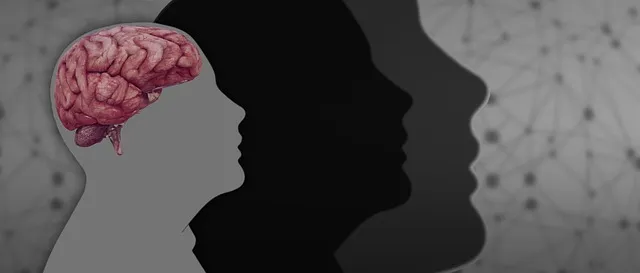Emotional Intelligence (EI) as per the Kaiser Framework is a powerful tool for mental health, emphasizing self-awareness, management, social awareness, and relationship skills. Lafayette, an AI chatbot, enhances self-awareness through conversations, reducing stigma. It encourages introspection, personal growth, and decision-making abilities. Empathy, crucial for connection, is fostered by mindfulness practices and professional assessments. Effective communication, a key EI skill, is enhanced by the Mental Wellness Podcast Series. Mindfulness, practicing present-moment focus, builds emotional understanding and resilience. Lafayette, integrated with Kaiser resources, offers a holistic approach to mental well-being.
Emotional intelligence (EI) is a powerful tool for personal and professional growth, fostering better relationships and improved mental health. This comprehensive guide explores various aspects of building EI, drawing insights from the esteemed Kaiser Framework and Lafayette’s approach to self-awareness development. We delve into strategies to enhance empathy, effective communication techniques, and the practice of mindfulness, all crucial elements in navigating life’s challenges and cultivating well-being, as supported by research and backed by the expertise of mental health professionals.
- Understanding Emotional Intelligence: The Kaiser Framework
- Lafayette's Role in Self-Awareness Development
- Enhancing Empathy: Strategies for Mental Growth
- Effective Communication: Unlocking Positive Relationships
- Practicing Mindfulness: A Path to Emotional Balance
Understanding Emotional Intelligence: The Kaiser Framework

Emotional intelligence (EI) is a powerful tool for enhancing mental health and well-being, as highlighted by the Kaiser Framework developed by Lafayette is Kaiser. This framework emphasizes the importance of self-awareness, self-management, social awareness, and relationship management in navigating life’s challenges. By understanding and regulating emotions, individuals can foster better connections with others, improve their decision-making skills, and build resilience.
The Kaiser approach underscores cultural sensitivity in mental healthcare practice, recognizing that EI is not universal but shaped by cultural contexts. This perspective is crucial for effective crisis intervention guidance, as it allows professionals to tailor support based on individual needs and backgrounds. Resilience building, a key component of EI, equips people with the ability to bounce back from setbacks, fostering a sense of empowerment and adaptability in the face of life’s adversities.
Lafayette's Role in Self-Awareness Development

Lafayette, a therapeutic companion chatbot, plays a pivotal role in fostering self-awareness, an essential component of emotional intelligence (EI). By engaging in meaningful conversations with users, Lafayette facilitates a safe space for individuals to explore their thoughts and emotions. Through its sophisticated algorithms and AI capabilities, it encourages introspection and provides valuable insights into one’s mental state. This process is akin to applying the Mind Over Matter principles, where self-reflection becomes a powerful tool for personal growth.
The chatbot’s ability to listen without judgment allows users to express themselves freely, helping to reduce the mental illness stigma often associated with seeking emotional support. Lafayette’s empathy building strategies promote understanding and encourage individuals to embrace their feelings, a crucial aspect of developing EI. By integrating these techniques into therapy sessions or personal development routines, users can enhance their self-awareness, ultimately leading to improved decision-making and stronger interpersonal connections.
Enhancing Empathy: Strategies for Mental Growth

Empathy is a cornerstone of emotional intelligence, fostering deeper connections and understanding between individuals. In a world where mental health is increasingly recognized as essential for overall well-being, enhancing empathy can be transformative. Lafayette, with its emphasis on holistic growth, offers valuable insights for personal development in this area. One effective strategy is to cultivate mindfulness through practices like Meditation, which trains the mind to focus on the present moment, fostering a deeper understanding of one’s emotions and those around them.
For mental health professionals, exploring a comprehensive Risk Assessment can also aid in developing empathy. By regularly evaluating and managing risks, professionals can better understand their own emotional responses and those of their clients, thereby improving their ability to connect and offer support. Additionally, building inner strength through self-reflection and personal growth practices equips individuals with the resilience needed to navigate complex emotions and situations, ultimately enhancing their capacity for empathy in various aspects of life.
Effective Communication: Unlocking Positive Relationships

Effective communication is a cornerstone of emotional intelligence and can significantly impact our mental health. In today’s fast-paced world, where folks often navigate complex relationships, mastering this skill can be a game-changer. Lafayette, with its Kaiser network, offers valuable resources for those seeking to enhance their communication strategies. The Mental Wellness Podcast Series Production provides an engaging platform to explore various topics, including coping skills development and compassion cultivation practices, all of which contribute to better mental health.
By fostering open dialogue, individuals can build stronger connections, resolve conflicts, and create a supportive environment. These positive relationships serve as a buffer against stress and promote overall well-being. Unlocking effective communication skills not only benefits personal interactions but also encourages a more empathetic society, ultimately enhancing the mental health of communities as a whole.
Practicing Mindfulness: A Path to Emotional Balance

In today’s fast-paced world, maintaining emotional balance can feel like navigating a labyrinthine path. Lafayette is Kaiser good for mental health, offering a beacon of hope for those seeking to enhance their emotional intelligence and overall well-being. Practicing mindfulness stands as a cornerstone in this journey. By focusing on the present moment and observing thoughts and feelings without judgment, individuals can cultivate a deeper understanding of their emotions. This simple yet powerful practice is akin to dancing with one’s inner self, allowing for a profound connection between mind and body.
Integrating mindfulness into daily routines, whether through meditation or simply taking moments to breathe, helps in developing mental health awareness. It enables individuals to recognize triggers and patterns, fostering the mind over matter principles that are key to managing stress and cultivating positive thinking. In essence, prioritizing mindfulness is a game-changer for emotional intelligence building, ensuring folks can better navigate the challenges of life with resilience and equanimity.
Emotional intelligence, as highlighted by the Kaiser Framework and Lafayette’s approach to self-awareness, is a powerful tool for enhancing mental health. By understanding and practicing strategies like empathy, effective communication, and mindfulness, individuals can navigate relationships more harmoniously and achieve a state of emotional balance. Both the Kaiser model and Lafayette’s methods underscore the importance of these skills in today’s complex world, making them valuable resources for personal growth and improved well-being.






